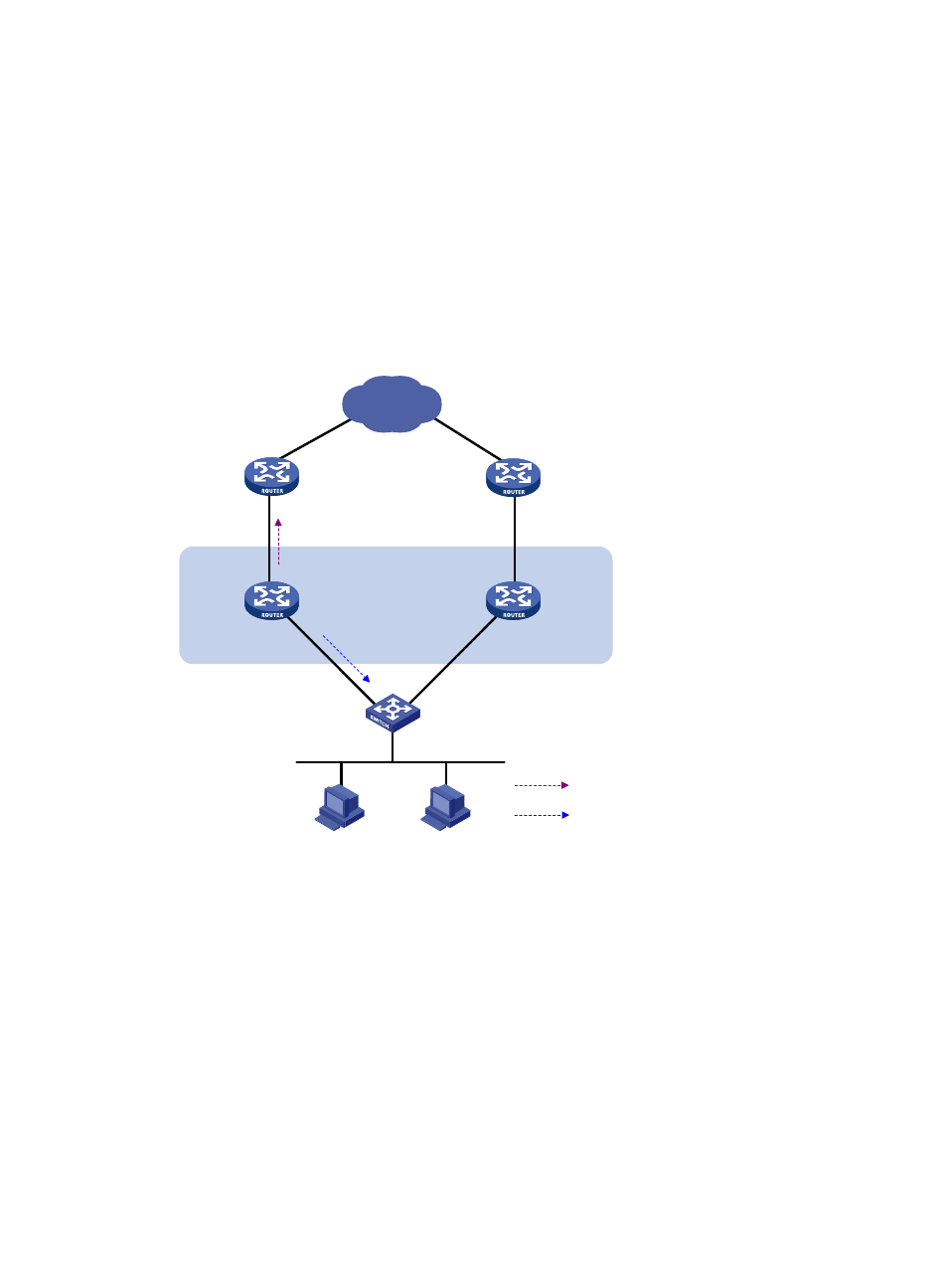Network requirements, Configuration procedure – H3C Technologies H3C MSR 5600 User Manual
Page 78

70
Configuring BFD for the VRRP master to monitor the uplink
Network requirements
As shown in
, Router A and Router B belong to VRRP group 1, whose virtual IP address is
192.168.0.10.
The default gateway of the hosts in the LAN is 192.168.0.10.
When Router A works correctly, hosts in the LAN access the external network through Router A. When
Router A detects that the uplink is down through BFD, it decreases its priority so that Router B can preempt
as the master, ensuring that the hosts in the LAN can access the external network through Router B.
Figure 18 Network diagram
Configuration procedure
1.
Configure BFD on Router A:
# Configure the source address of BFD echo packets as 10.10.10.10.
[RouterA] bfd echo-source-ip 10.10.10.10
2.
Create the track entry to associate with the BFD session on Router A:
# Create track entry 1 for the BFD session on Router A to check whether the uplink device with the
IP address 1.1.1.2 is reachable.
[RouterA] track 1 bfd echo interface ethernet 1/1 remote ip 1.1.1.2 local ip 1.1.1.1
3.
Configure VRRP on Router A:
# Create VRRP group 1, and configure the virtual IP address of the group as 192.168.0.10.
Configure the priority of Router A in VRRP group 1 as 110, and configure VRRP group 1 to monitor
Internet
Master
uplink device
Backup
uplink device
Uplink
Virtual router
Virtual IP address:
192.168.0.10
Eth1/2
192.168.0.101/24
Eth1/2
192.168.0.102/24
Router A
Master
Router B
Backup
Eth1/1
1.1.1.1/24
Eth1/1
1.1.1.2/24
L2 switch
Uplink
VRRP packets
BFD probe packets
